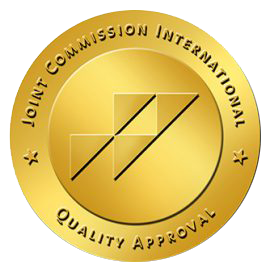Dr. Gihad Chalouhi: “MFM specialists For the next generation’s health”
Today, fetal therapy is recognized as one of the most innovative and promising fields in prenatal medicine. Fetal surgery is becoming increasingly successful for a growing number of babies with birth defects.
What is maternal and fetal medicine?
Maternal and Fetal Medicine (MFM) is the part of obstetric medicine that manages pathologies of the mother and fetus during the course of a pregnancy. This specialization is vital to high-risk pregnancies and has proven to improve the chances of survival and overall health of babies.
For the mother, these pathologies include hypertension, thyroid problems, hepatic problems, diabetes and many other diseases that can complicate and jeopardize the pregnancy.
For the fetus, the MFM specialist can detect, investigate, manage fetal pathologies and perform in-utero treatments to the fetus. These can include malformations, (such as diaphragmatic hernia, spinal bifida, twin-to-twin transfusion syndrome…) infectious diseases that are passed on from the mother (rubella, toxoplasmosis, CMV…) or genetic disorders (cystic fibrosis, SLA, trisomy, aneuploidy…).
How is an MFM specialist different than a general obstetrician?
An MFM specialist is an obstetrician and gynecologist who specializes in Maternal and Fetal Medicine. Doctors holding this practice assist patients with high-risk pregnancies and fetal malformations. They can perform invasive procedures and fetal surgery when needed.
When should a pregnant woman see an MFM? Do women self-refer to MFM specialists or are they referred by a general OBGYN?
Pregnant women can consult an MFM specialist if they are aware of a maternal pathology that might affect the pregnancy or if the fetus presents an abnormality on a routine ultrasound screening. Generally, the OBGYN or practitioner who follows the pregnancy recommends it. The MFM specialist acts as a pregnancy consultant and the progress and delivery stages are still managed by the OBGYN.
What is an MFM ultrasound? How is it different from the regular ultrasound?
Each pregnant woman undergoes at least two mandatory ultrasound exams during her pregnancy. In case screenings detect an anomaly, the patient is referred to an MFM, who runs a thorough diagnostic ultrasound exam to detect and characterize fetal malformations.
What are the types of fetal interventions?
There is a range of therapeutic and diagnostic procedures performed throughout the course of a pregnancy. Diagnostic procedures aim at determining the karyotype of the fetus and identifying anomalies such as trisomy. The common diagnostic tests performed are the Chorionic villus sampling (CVS), Amniocentesis (AFT) and the fetal blood sampling (FBS).
CVS is the process of extracting chorionic villi cells, holding fetal genetic information, from a woman’s abdomen, to analyze and diagnose chromosomal abnormalities and genetic disorders. The CVS procedure provides an early diagnosis and is done early in the pregnancy between 11 to 14 weeks.
AFT is performed to diagnose chromosomal abnormalities, genetic disorders and fetal infections, by collecting a small amount of amniotic fluid holding fetal secretions. The fetal tissues are examined to observe the fetal DNA and detect genetic abnormalities. AFT can be performed starting the 16th week of pregnancy.
FBS is a procedure that extracts the fetal blood directly from the umbilical cord or fetus. The blood is then processed for anemia, hemophilia and other blood conditions (infection, genetic disorders). Additionally, it can be therapeutic in case(s) of in-utero transfusion or direct treatment to the fetus (drug delivered directly in the blood of the fetus).
In case an abnormality is detected, fetal surgery allows the MFM specialists to intervene early in the pregnancy (while the baby is still in the womb). Fetal surgery can remediate to certain disabling and life-threatening birth conditions during fetal development, including diaphragmatic hernia, fetal anemia, amniotic band syndrome, twin-to-twin transfusion syndrome, arachnoid cysts and cardiac pathologies…
How common is it for MFM’s to perform fetal surgery and what are the risks?
Few certified physicians are qualified to perform fetal surgery in Lebanon. Although a small percentage of pregnancies require fetal intervention, the cases are frequent on a national scale. Awareness around pregnancy conditions and early diagnoses are vital and should be monitored and performed by MFM specialists to improve the prognosis of birth conditions or prenatal pathologies, increase the life expectancy of the fetus and enhance the lifestyle of the future baby.
Does fetal surgery hold risks on the mother and baby?
All interventions come at risk. Fetal surgery presents no significant vital risk for the mother. However, surgery is performed only after a thorough risk-versus-benefits assessment for the fetus.
Dr. Gihad Chalouhi
Fetal surgeon
Maternal Fetal Medicine Specialist
Screening and diagnostic fetal ultrasound imaging
Leave a reply






